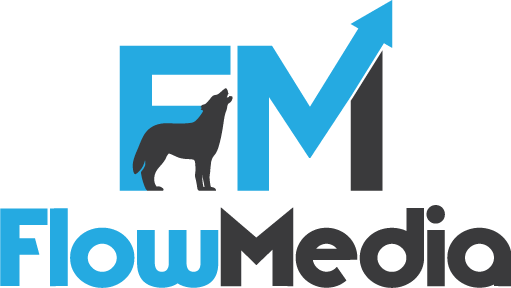Website Security Threats NZ Businesses Must Know (7 Critical Risks)
Graham Lockett
August 15, 2024
Cyberattacks on NZ businesses increased 300% in 2024. Small businesses are 3x more likely to be targeted than large enterprises. One successful attack costs an average of $87,000 and destroys 60% of businesses within 6 months.
The Security Crisis
Every 39 seconds, a cyberattack occurs somewhere in the world. NZ businesses lose $257 million annually to cybercrime. Yet 68% of small businesses have no cybersecurity plan, making them sitting ducks for attackers.
7 Critical Security Threats Targeting NZ Businesses
Malware & Ransomware Attacks
The Threat: Malicious software encrypts your files and demands payment, or steals sensitive customer data.
The Impact: Average ransomware payment is $84,000, plus downtime costs of $274,000. 76% never fully recover their data.
Multi-Layer Malware Protection
- Install enterprise-grade antivirus with real-time scanning
- Implement automated backup systems with offline storage
- Use email filtering to block malicious attachments
- Keep all software and plugins updated automatically
- Train staff to recognize phishing and suspicious links
SQL Injection & Database Breaches
The Threat: Attackers exploit website vulnerabilities to access customer databases and steal personal information.
The Impact: Data breaches cost $4.45 million on average, plus legal liability and permanent reputation damage.
Database Security Hardening
- Use parameterized queries and input validation
- Implement database encryption for sensitive data
- Apply principle of least privilege for database access
- Regular security audits and penetration testing
- Monitor database activity for suspicious behavior
DDoS Attacks & Website Downtime
The Threat: Distributed attacks overwhelm your website with traffic, making it inaccessible to customers.
The Impact: Website downtime costs $5,600 per minute for small businesses, plus lost sales and customer trust.
DDoS Protection & Mitigation
- Use CDN services with built-in DDoS protection
- Implement rate limiting and traffic filtering
- Set up website monitoring and alerting systems
- Create incident response plans for attacks
- Use cloud hosting with auto-scaling capabilities
Weak Authentication & Password Breaches
The Threat: Weak passwords and single-factor authentication make accounts easy targets for brute force attacks.
The Impact: 81% of data breaches involve weak or stolen passwords. Account takeovers cost $4,800 per incident on average.
Advanced Authentication Security
- Enforce strong password policies (12+ characters, complexity)
- Implement multi-factor authentication (MFA) for all accounts
- Use password managers for unique, complex passwords
- Set up account lockout policies after failed attempts
- Regular password audits and forced updates
Outdated Software & Plugin Vulnerabilities
The Threat: Unpatched software and plugins create security holes that attackers exploit to gain system access.
The Impact: 60% of breaches involve unpatched vulnerabilities. WordPress sites with outdated plugins are 30x more likely to be hacked.
Automated Update Management
- Enable automatic updates for critical security patches
- Maintain inventory of all software and plugins
- Remove unused plugins and software immediately
- Test updates in staging environment first
- Subscribe to security bulletins for early warnings
Phishing & Social Engineering Attacks
The Threat: Attackers trick employees into revealing credentials or installing malware through fake emails and websites.
The Impact: 91% of cyberattacks start with phishing. Average cost per successful phishing attack is $4.65 million.
Anti-Phishing Defense System
- Implement advanced email filtering and anti-phishing tools
- Conduct regular phishing simulation training
- Establish clear verification procedures for sensitive requests
- Use email authentication (SPF, DKIM, DMARC)
- Create incident reporting procedures for suspicious emails
Insecure Data Storage & Transmission
The Threat: Unencrypted data storage and transmission exposes sensitive customer information to interception.
The Impact: Data breaches cost $4.45 million on average. GDPR fines can reach 4% of annual revenue for data protection violations.
End-to-End Data Protection
- Implement SSL/TLS certificates for all data transmission
- Use AES-256 encryption for sensitive data storage
- Establish data retention and deletion policies
- Regular security audits of data handling procedures
- Comply with privacy regulations (GDPR, Privacy Act)
The SECURE Defense Framework
Build Unbreachable Website Security
Scan
Regular vulnerability assessments
Encrypt
Protect data in transit and rest
Control
Access management and authentication
Update
Keep systems patched and current
Respond
Incident response planning
Educate
Staff security awareness training
Frequently Asked Questions
How often should I update my website security?
Security updates should be applied immediately when available. Perform comprehensive security audits quarterly, and vulnerability scans monthly. Critical patches should never wait more than 48 hours.
What's the most important security measure for small businesses?
Regular automated backups are the most critical. Even if everything else fails, backups let you recover quickly. Combine this with strong passwords, two-factor authentication, and keeping software updated.
How much should I budget for website security?
Budget 3-5% of your IT spending on security, or $200-500 monthly for small businesses. This covers security tools, monitoring, backups, and professional security audits. The cost of prevention is always less than recovery.
Protect Your Business from Cyber Threats FlowMedia's security experts help NZ businesses implement comprehensive website security that stops attacks before they happen.Get your free security audit today.
Graham Lockett
Digital marketing strategist helping New Zealand businesses achieve sustainable growth through proven strategies and data-driven optimization.
Related Articles
Why Your SEO Is Not Working (8 Reasons Small Businesses Fail)
Discover the critical reasons why SEO fails for small businesses and the proven strategies that deliver real search rankings.
Why Your Google Ads Are Wasting Money (7 Critical Mistakes)
Discover the critical Google Ads mistakes that waste NZ business budgets and the optimization strategies that deliver real ROI.
Frequently Asked Questions
Common questions about 7 website security threats facing nz businesses
